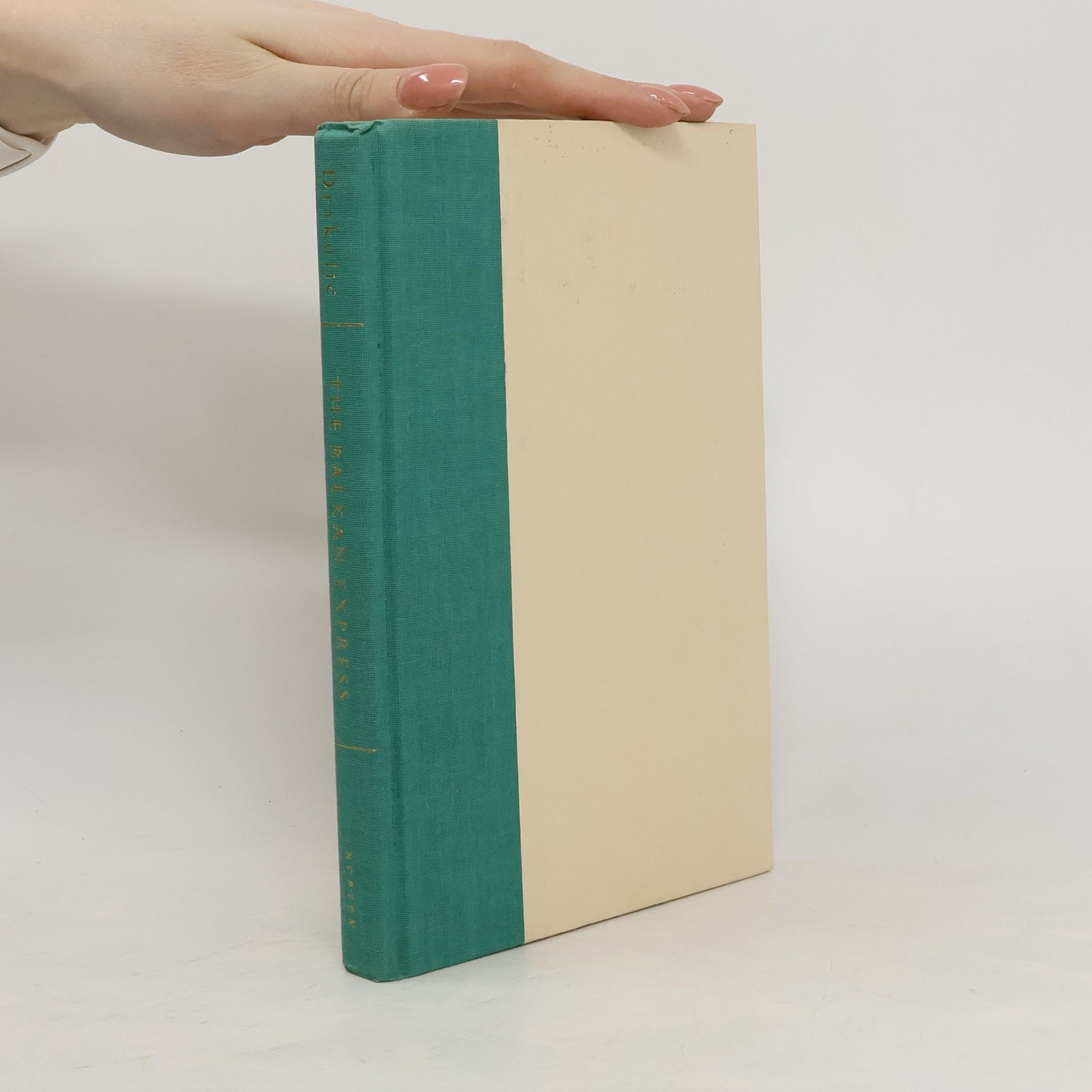Dora Maar et le Minotaure
- 208pages
- 8 heures de lecture
Slavenka Drakulić est une écrivaine croate renommée dont les œuvres explorent des expériences humaines complexes, de la confrontation avec la maladie et la peur de la mort au pouvoir destructeur du désir et à la fragilité des relations. Elle sonde les aspects les plus sombres de la psyché humaine, y compris la cruauté de la guerre et des sujets sensibles tels que la maltraitance infantile. Dans ses essais, Drakulić examine les paysages politiques et idéologiques des pays post-communistes, les crimes de guerre et le nationalisme, ainsi que les questions féministes et le corps féminin. Son écriture, souvent adoptant des perspectives non conventionnelles comme les vies de femmes célèbres ou l'analyse du mal et du bien chez les gens ordinaires, l'a établie comme une voix européenne influente.






English (translation)Original French, Serbo-Croation
"S. may very well be one of the strongest books about war you will ever read. . . The writing is taut, precise, and masterful." —The Philadelphia Enquirer Set in 1992, during the height of the Bosnian war, S. reveals one of the most horrifying aspects of any war: the rape and torture of civilian women by occupying forces. S. is the story of a Bosnian woman in exile who has just given birth to an unwanted child—one without a country, a name, a father, or a language. Its birth only reminds her of an even more grueling experience: being repeatedly raped by Serbian soldiers in the "women's room" of a prison camp. Through a series of flashbacks, S. relives the unspeakable crimes she has endured, and in telling her story—timely, strangely compelling, and ultimately about survival—depicts the darkest side of human nature during wartime.
Tells how the Yugoslavian civil war is destroying everyday lives, disrupting relationships, and turning friends into enemies
In 1990 Slavenka Drakulic travelled through Yugoslavia, East Germany, Poland, Czechoslovakia and Bulgaria, spending time with women and listening to their life stories, cooking with them, drinking coffee when they had any, learning how they had survived communism, and sometimes managing to laugh. This is her account of those women's lives in pre-revolutionary Eastern Europe.
Slavenka Drakulic attended the Serbian war crimes trial in the Hague. This important book is about how ordinary people commit terrible crimes in wartime. With extraordinary story-telling skill Drakulic draws us in to this difficult subject. We cannot turn away from her subject matter because her writing is so engaging, lively and compelling. From the monstrous Slobodan Milosevich and his evil Lady Macbeth of a wife to humble Serb soldiers who claim they were 'just obeying orders', Drakulic brilliantly enters the minds of the killers. There are also great stories of bravery and survival, both from those who helped Bosnians escape from the Serbs and from those who risked their lives to help them.
Europe is still a divided continent. In the place of a fallen Berlin wall, there is a chasm between the East and the West. Are these differences a communist legacy, or do they run even deeper? What divides us today? To say simply that it is the understanding of the past, or a different concept of time, is not enough. But a visitor to this part of the world will soon discover that we, the Eastern Europeans, live in another time zone. We live in the twentieth century, but at the same time we inhabit a past full of myths and fairy tales, of blood and national belonging, and the fact that most people are lying and cheating or that they have the habit of blaming others for every failure...' An intimate tour of life on the streets of Budapest, Tirana, Warsaw and Zagreb, as those cities continue to acclimatise to the post-Communist thaw, Café Europa does not provide easy solutions or furnish political pallatives. Rather as a Croatian with a viewpoint of ever-widening relevance, the value of Slavenka Drakulic's wry and humane observations lie in the emotional force of their honesty and the clarity of their insight.....
"Drakulić’s composite portrait provides a clear-eyed look at European values, and what they really amount to." —The New Yorker An evocative and timely collection of essays that paints a portrait of Eastern Europe thirty years after the end of communism. An immigrant with a parrot in Stockholm, a photo of a girl in Lviv, a sculpture of Alexander the Great in Skopje, a memorial ceremony for the 50th anniversary of the Soviet led army invasion of Prague: these are a few glimpses of life in Eastern Europe today. Three decades after the Velvet Revolution, Slavenka Drakulic, the author of Cafe Europa and A Guided Tour of the Museum Of Communism, takes a look at what has changed and what has remained the same in the region in her daring new essay collection. Totalitarianism did not die overnight and democracy did not completely transform Eastern European societies. Looking closely at artefacts and day to day life, from the health insurance cards to national monuments, and popular films to cultural habits, alongside pieces of growing nationalism and Brexit, these pieces of political reportage dive into the reality of a Europe still deeply divided.
In a collection of eight stories that satirize communism, each tale is narrated by an animal repsenting a formerly communist country, with the critter reflecting on the fall of communism. By the author of Café Europa: Life After Communism. Original. 30,000 first printing.
One autumn in New York, a young Polish poet, studying literature, and a Brazilian anthropologist researching a new book, meet, fall in love and move into a tiny apartment together. Tereza has a lover waiting for her in Poland, Jose a wife and child in Sao Paulo, and it would seem this could only be the most temporary of affairs. Yet there emerges the mesmerizingly explicit portrait of a relationship conducted at the extreme edge of sensuality, defying conventional definition. With no common language, exiled from their culture, for each of them the body of the other becomes everything: spirituality, sustenance, almost unbearable pleasure. Breathtakingly erotic, intensely physical, profoundly intelligent, THE TASTE OF A MAN pursues a path traced by a love based on pure appetite with shameless and unflinching candour, to its ecstatic and terrible conclusion.